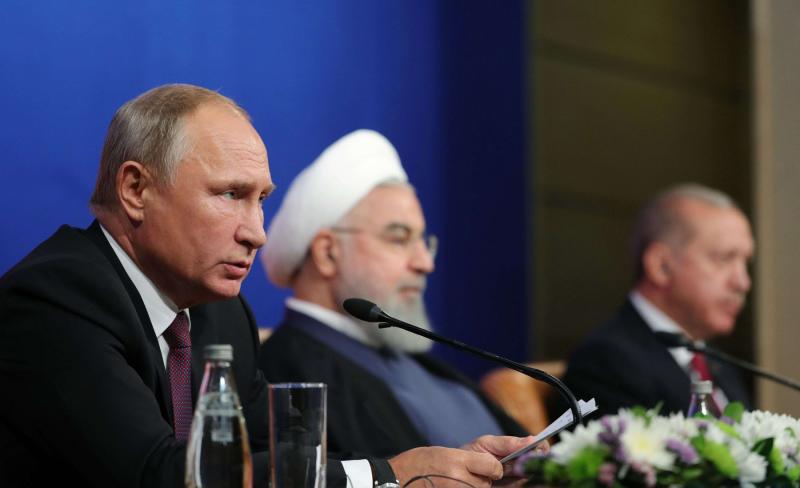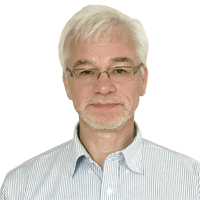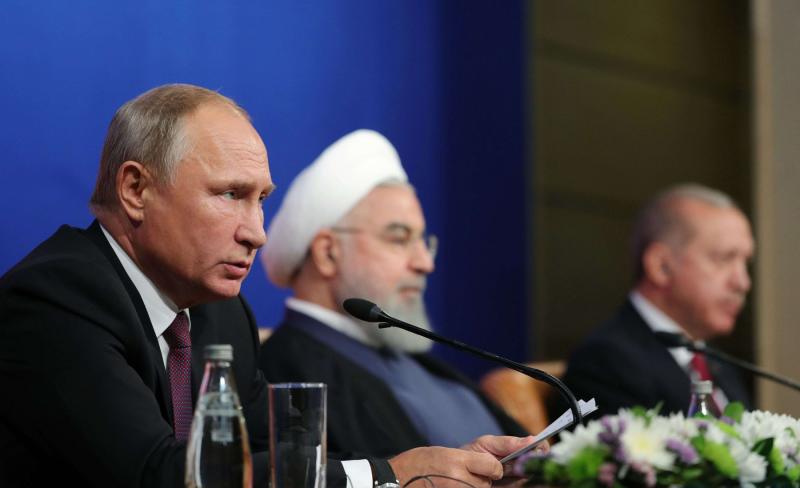Russian-Iranian-Turkish alliance fractured at Tehran summit
ISTANBUL - A presidential summit by Russia, Iran and Turkey designed to produce a solution for the last rebel stronghold in Syria has instead fissured the alliance among the three powers, throwing their future cooperation into doubt.
An attack by Syrian government troops — with Russian and Iranian backing — is expected in Idlib, a Syrian province on the border with Turkey that is the last rebel-held area in the country after more than seven years of war that has killed more than 500,000 people.
The tripartite meeting in Tehran on September 7 ended without a commitment to call off the offensive, frustrating a Turkish push for a ceasefire despite warnings by Ankara of a collapse of the “political process” for Syria.
During the summit, the presidents of Russia, Iran and Turkey, Vladimir Putin, Hassan Rohani and Recep Tayyip Erdogan, sparred publicly about how to address the situation in Idlib. Syrian President Bashar Assad has sworn to retake the area, which has become a sanctuary for millions of refugees and tens of thousands of rebel fighters.
Turkey was prepared to step in if there is a large-scale attack on Idlib, Erdogan warned. “If the world turns a blind eye to the killing of tens of thousands of innocent people to further the regime’s interests, we will neither watch from the sidelines nor participate in such a game,” he wrote on Twitter after the Tehran meeting.
Erdogan earlier surprised Rohani and Putin by proposing a ceasefire for Idlib during televised remarks. “If we declare a ceasefire here today, that would be a victory for this summit,” Erdogan said. Putin swiftly rejected the proposal and said the Syrian government had the right to regain control over all the country’s territory.
The summit’s final statement ignored Erdogan’s call, prompting the Turkish leader to blast the communique during a news conference with Putin and Rohani, a highly unusual step.
Turkey, which has taken in more than 3 million Syrian refugees, says it cannot cope with a new influx that could be triggered by a government offensive in Idlib. “Attacks directed against the Idlib region will worsen the situation on the ground and will bring the political process to a breaking point,” Erdogan said.
It was unclear whether Turkey’s warnings would delay the expected Idlib attack. Yury Barmin, a Russian analyst and contributor for the website of the Middle East Institute in Washington, posted on Twitter that “it seems that Erdogan bought himself some time on Idlib” with the Tehran summit.
Russia, Iran and Turkey are partners in the so-called Astana Process, a platform of Syria talks that runs parallel to UN efforts to end the fighting in Syria. Despite being on opposing sides in the conflict — Russia and Iran are major supporters of Damascus while Turkey has sponsored Sunni rebel groups fighting Assad’s forces — the three countries have been cooperating closely. The three are united by a deep suspicion of US policies that rest on military support for Syria’s Kurds in eastern of Syria.
Moscow has used the Astana talks to push its military and political agenda for Syria. However, Russia needs the cooperation of Turkey, a Syrian neighbour with considerable influence among Sunni groups. A Turkish withdrawal from the Astana Process would make it difficult for Russia to end the Syrian war and establish a post-war order along its own priorities.
“The alliance was never a love match,” said Magdalena Kirchner, senior analyst at Conias Risk Intelligence, referring to the cooperation between the three countries. She said the partners tried to push their political differences into the background as fighting raged in different parts of Syria that has declared “de-escalation zones” by the Astana powers.
Kirchner said keeping conflicting interests under wraps no longer worked in Idlib, because rebels and civilians there had nowhere else to go within Syria.
“At some point, you can’t go on,” Kirchner added. “Turkey is in effect telling the others: ‘I can’t help you if you are hell-bent to get your own way’” in Idlib.
While Erdogan warned of a “bloodbath” in Idlib, his two counterparts stressed the need to fight radicals in the province. Putin mentioned a “phased stabilisation” in Idlib and said he hoped “terrorist organisations will have enough common sense to stop resistance and lay down their weapons.”
However, the Russian president was not impressed by a Turkish proposal to relocate some rebel groups within Idlib so they could not attack the Russian airbase of Hmeimim with drones. “Russia’s expectation of how Erdogan is planning to handle Idlib will be growing,” Barmin tweeted.
As the summit began, tensions surfaced between the United States and Russia. US Syria adviser James Jeffrey said there was “lots of evidence” that chemical weapons were being prepared by Syrian government forces in Idlib. “Any offensive is to us objectionable as a reckless escalation,” Jeffrey said. “There is lots of evidence that chemical weapons are being prepared.” US Marines General Joseph Dunford, chairman of the US Joint Chiefs of Staff, said the US military was drawing up plan for a response if chemical weapons were used in Idlib.
Putin told the Tehran summit that Russia had proof that militants in Idlib were preparing chemical weapons attacks and planned to blame the Syrian government and provoke Western air strikes.
Thomas Seibert is an Arab Weekly contributor in Istanbul.
This article was originally published in The Arab Weekly.







